DUST
“… for He knows how we are formed, He remembers that we are dust” (Psalm 103:14—NIV).
With the recent passing of my husband Bill’s grandmother Ruby Farley at the age of ninety, we’re reminded that each of us—no matter how sweet, successful, happy or seemingly whole—will one day return to dust. Death—a part of life.
Just as dust is, too, a part of life—that real, tangible evidence that gathers on our furniture and in our vehicles and all those places where life happens. In a word—everywhere!

We know it well. Contend with it daily. Sometimes ignore it too long. Truth is, we ARE it. As it settles on our furniture or tickles our noses, it is in fact tiny bits of you and me.
Personally, I’m not fond of dust—though I love the people around me (pets, too) that create it—lavishly distributing it and contributing to the accumulation of it on my television screen and coffee table.
Of all the chores that call for my attention, my least favorite it dusting—the removal of the evidence of life going on in my home. I would rather vacuum twenty times before finally breaking down and dusting even once. Toilets—no problem; after all, these too require regular cleaning due to other “deposits” left there on a regular basis. Even ironing is, for me, better than dusting.
Perhaps I’m lazy—dreading having to move all the little knick-knacks, pictures, and books, fumbling with houseplants, and shaking out doilies. Yet, skiffing around them leaves me feeling like I’ve only done a partial job—though it makes no sense that somehow avoiding the task altogether is better still.
One reads in the Bible that God created the first man and woman from dust.
… the LORD God formed the man from the dust of the ground and breathed into his nostrils the breath of life, and the man became a living being (Gen. 2:7—NIV).
Like a chef creating a culinary masterpiece, he or she chooses the main ingredient. For God, it was dust.
Envision Him working in the soil—bending over and creating a mound of earth with His hands. Water isn’t mentioned, and there’s no talk of mud—which would certainly make shaping hands and feet (and all our other intricate parts) so much easier than just plain dirt. Still, God simply breathes life into the nostrils of this dirty, dusty, brand-new, never-before-created shape. Voila! Man is formed. The Bible goes on to say that both the male and female versions are made in God’s image (Gen. 1:27), and I find that simply amazing!
After reading this passage, I wonder—Did the first man come into being with a sneeze (which might explain the notion of the “Big Bang Theory” a bit better—some scientists’ attempt to blend both humanism and creationism)? God did, after all, breathe into the man’s nostrils, and there was dust involved. We all know what happens when dust tickles one’s nose, right?
Speaking of sneezing and noses makes me want to dig a bit deeper. In the NIV Exhaustive Concordance, there are 109 references for the word “dust” in the Bible. It seems, thus, that dust is pretty important. Furthermore, right after the word “dust” comes the word “duty,” but there is absolutely no mention at all of “dusting”—the duty I dislike most. Maybe I’m reading too much into this, but I appreciate that God’s Word, with all the dust, never mentions the importance of its removal or disposal—though many of us would do well to dust off our Bibles.
What does all this mean, I wonder? As I study further, I find a favorite passage. The Prophet Isaiah offers us a declaration of God’s great love.
But now… the LORD who created you says: Do not be afraid, for I have ransomed you. I have called you by name; you are Mine (Is. 43:1—NLT).
When we read these words from our Heavenly Father, aren’t we amazed? How personal they are for us. How affirming!
Too often, we roll up our sleeves as we prepare for the day, ready to tackle the duties at hand—the cleaning of toilets, mopping of floors, and—Yes!—the dusting of furniture. But don’t we often feel insignificant in these menial tasks—wishing we could, instead, find a cure for cancer or write the next best-selling novel? After all, who really notices a sparkling toilet anyway?
But can’t you hear the love in God’s words through Isaiah—“I have called you by name… you are Mine”? They say we’re significant. They say we matter. Yes, they say we belong to God.
There’s beauty in them. Truth, too, as they encourage us to do all things, no matter how menial, for the glory of God—as long as there’s breath in our lungs and life in these bones.
One day we, too, will be called Home. Because we’ll each be given a new name and a new body—free from the slow dying that yet creates dust each day here on earth—I’m hoping there won’t be any need for dusting in our heavenly abodes. But while I’m yet here, perhaps I’ll try and see the evidence of life that, even as I’ve written, has accumulated on my desk as something lovely rather than lousy. And maybe—just maybe—before I swipe it off my coffee table and piano, I’ll write my name in it instead and hear again God’s voice as He whispers, “I love you.”
Yes, He calls us each by name–saying…
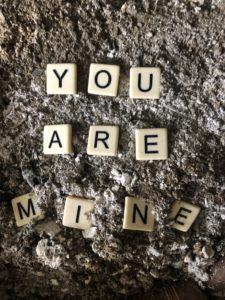
In loving memory of a beautiful soul—who offered us assurance of her salvation prior to her passing. Grandma Ruby, you were a precious child of God’s on earth, and we believe beyond doubt that you’re even more beautiful in the presence of our sweet Savior, Jesus. Until we meet again, we will love as you loved—ever grateful for the example you set.
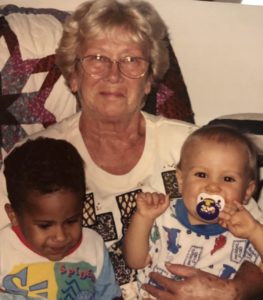

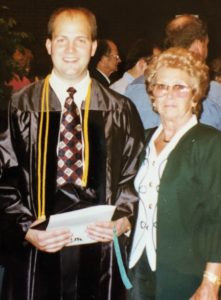
Related Posts
2 Comments
Comments are closed.
Search
Subscribe to Blog via Email
Categories
- At Home (173)
- God's Word (180)
- His World (198)
- Uncategorized (5)

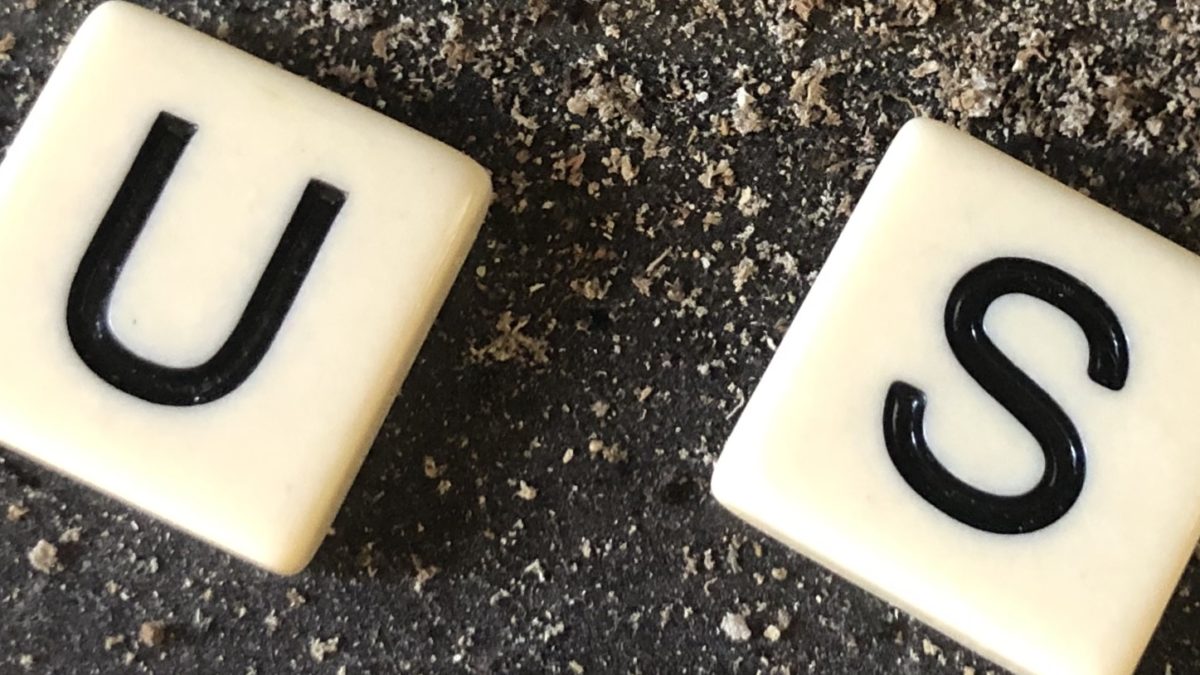
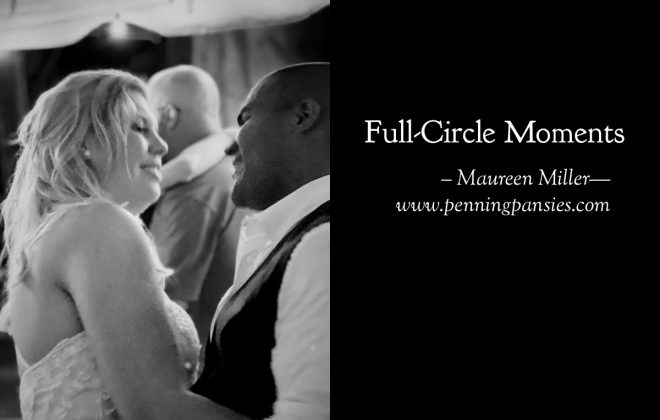

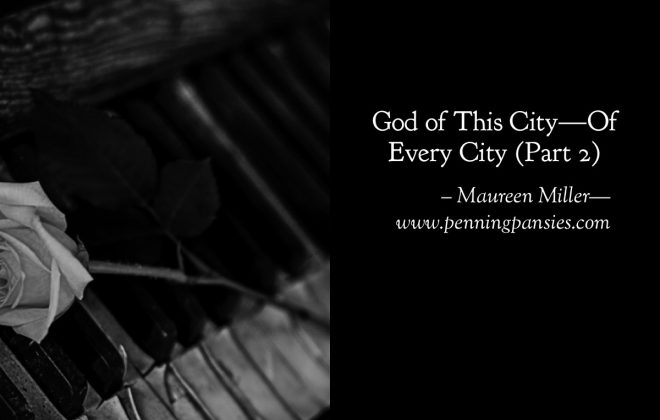
Maureen, I am so sorry to hear of the passing of Bill’s grandmother. Your words are a wonderful tribute to her. And the thought of dust as “evidence of life” has never occurred to me. You have given. us lots of think about here. Thank you!
Thank you, dear Maggie. She is now with Jesus and at peace. <3 Thankful for this hope we have in Christ!!!